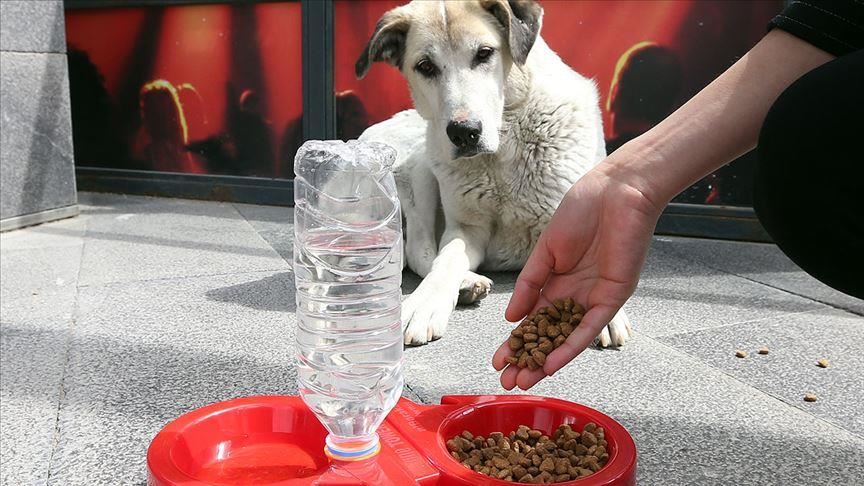Turkey To Protect Street Animals Amid COVID-19 Spread
New policy of Interior Ministry aims to provide food for animals at risk of starvation
ANKARA
Turkish Interior Ministry on Sunday issued a circular letter regarding the protection and feeding of street animals affected by the country’s social distancing policies to stem the spread of coronavirus.
The ministry urged local administrations to leave food to the designated locations on a regular basis so that the animals would not starve as now much fever people take to streets and stay at home due to virus, meaning they can not feed the animals anymore.
"Food and water will be left at the living environments of street animals such as parks and gardens, particularly animal shelters," the ministry said.
Streets animals in Turkey are vaccinated by local municipalities’ veterinaries, and they are regularly fed. Also, it is a part of the culture within Turkish society to take care of needy animals living outside.
With coronavirus death toll and registered cases rising, the Turkish government tightened its COVID-19 measures, imposing movement restrictions for those below 20, and over 65, along with those suffering from chronic diseases.
The virus has so far claimed 574 lives in Turkey, which has registered over 27,000 COVID-19 cases, while more than 1,000 others have recovered and discharged from hospitals.
Data compiled by the U.S.-based Johns Hopkins University shows worldwide infections surpassed 1.2 million, with 68,000 deaths.
Globally, an excess of 256,000 people have recovered so far.

Yorumlar
Yorum Gönder